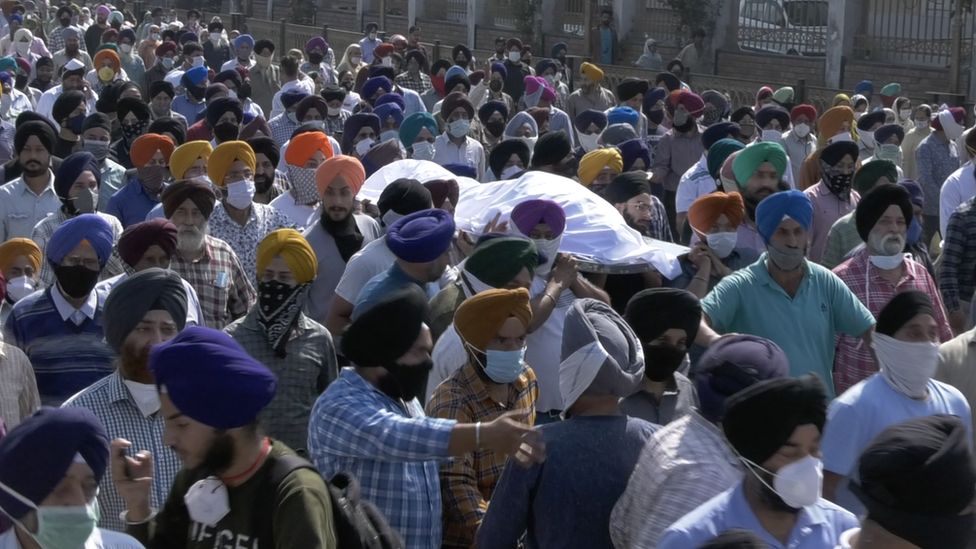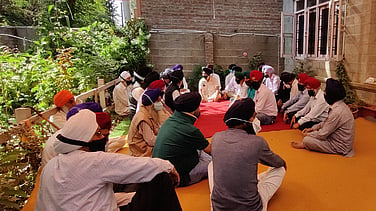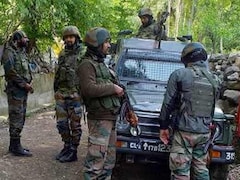
Kashmir’s central city Srinagar is where Siddharth Bedroom, 40, received a telephone call on his way to a restaurant.
An endocrinologist in the region, Mr. Bindroo, was shocked when the caller said, “Papa is dead.”.
On 5 October, a group of men allegedly entered their family’s medicine store and shot Makhan Lal Bindroo, his father, three times.
Mr. Bindroo is the son of Rakeshwar Nath Bindroo, a famous pharmacist and medical practitioner in Kashmir. A major pharmacy chain runs the family business in the region, known for selling life-saving drugs.
In the 1990s, an armed insurgency in the Muslim majority region sent hundreds of thousands of Kashmiri-speaking Hindus, commonly known as Pandits, scurrying for safety to other Indian cities. The Bindroos stayed behind to protect themselves. Minority Hindus were often targeted by the militants, who were seeking independence from India.
Recent killings of civilians have again sparked unease, particularly among the minorities in Indian-administered Kashmir.

Both ML Bindroo and a Muslim cab driver were killed by unknown men on the same day ML Bindroo was assassinated. Similar attacks took place earlier that day, 2 October.
The news that his mother’s husband had died consoles Siddharth Bindroo.
Two days after the attack, the assailants killed a Sikh teacher and his Sikh assistant at a government school in Srinagar’s remote Sangam area.
Especially among minorities in Kashmir, which has seen decades-long armed conflict with Delhi, the spate of targeted killings has triggered widespread fear. The situation now is similar to the 1990s when many Hindu families left the troubled region.
The government has also been forced to rethink its claims of peace.
Pakistan and India control parts of Kashmir but claim it in full. In 2019, Delhi revoked the region’s special autonomy, which has always created tension between the two countries.
Locals believe the move is designed to bring demographic changes to one of India’s most populous Muslim areas after a months-long communications blockade.
Supinder Kour’s husband Ramreshpal Singh had difficulty speaking for two days after her death; Ramreshpal could not talk.

The details of her death were beyond my comprehension, Mr. Singh said. I would have lost all meaning of anything else when I saw her dead.”
Observers reported that armed attackers stormed into the school, asked all staff members for their identification, and demanded their names. The police reports indicate that the principal and the teacher were separated and later shot to death.
Majeed, her neighbor, said that Supinder was like a sister to him. Having adopted a Muslim orphan girl, she would use a portion of her salary to keep her together.”
Sikhs in Kashmir attended the funeral of Surinder Kour in large numbers.
Several Kashmiri Pandits and Sikhs have been killed in targeted attacks in recent decades, including ML Bindroo and Supinder Kour. Over 35 Sikhs were killed in a village in the Anantnag district in March 2000 by unknown attackers. A remote village in the Pulwama district, Nadimarg, claimed the lives of more than 20 Kashmiri Pandits in 2003.
When more than 70 ministers visited Kashmir, seven in a week, the most recent murders occurred. During the 5 August 2019 Cabinet meeting, the ministers were asked to highlight the advantages of removing article 370 from the Indian Constitution.
They granted state autonomy through the article as it had its constitution, flag, and the right to make laws. The central government was in charge of security, defense, and communications.

Some have compared the current situation to the turmoil of the 1990s, however, because local politicians said the problem is far from ordinary. “A loud rebuttal to false claims of normality and peace,” said former Chief Minister Mehbooba Mufti.
This year, at least 28 civilians have been killed by suspected militants in Kashmir, according to Vijay Kumar, the chief of the Kashmir police department. Mr. Kumar told reporters last week that five of the victims are Hindus and Sikhs, while two others are non-local workers.
This week’s shooting has raised fears of underlying religious tensions, even though most victims were Muslims.
“An attempt to destroy communal harmony,” said Jammu and Kashmir Police Director-General Dilbagh Singh.
The Kashmiri Pandit community, however, says it lives in fear. They claim many are considering moving out of the area.
Demonstrations have broken out in India’s capital, Delhi, due to the killings of civilians in Kashmir.
Stop Minority Killing in Kashmir
 More than 5,000 Kashmiri Pandits live in the valley, and many of them are planning to migrate, according to Sanjay Tickoo, 53, head of an organization that represents them.
More than 5,000 Kashmiri Pandits live in the valley, and many of them are planning to migrate, according to Sanjay Tickoo, 53, head of an organization that represents them.
There are also fortifications on all sides of Bindroos’ house in Srinagar. It is now even clear that the walled apartments, inhabited by families of Kashmiri Pandits who returned under the government’s program, are empty.
On condition of anonymity, residents from one of such camps said that some families left the camp because they felt insecure. “The government will support us when some incidents happen, but will they protect all schools and offices?” the resident admitted.
Kashmiri Pandits are not the only ones feeling fear and uncertainty in the valley.
There was a massive security crackdown in 1991. “I am afraid even to recall what days were like,” says Muhammad Aslam, who lost his cousin in 1991 when the army executed his cousin for firing into the air.
Pandits in Kashmir are not all eager to leave. Those affiliated with the Bindroo tribes do not intend to go.
Makhan Lal Bindroo’s daughter Shradha Bindroo says they are a family from Kashmir and that their blood runs through their veins.
Sidharth Bindroo reached an agreement. In the days after his father’s death, he said that 90% of those who visited the family were Muslims.
Article Proof Read & Edited By Shreedatri Banerjee



